Anatomy of a Fall
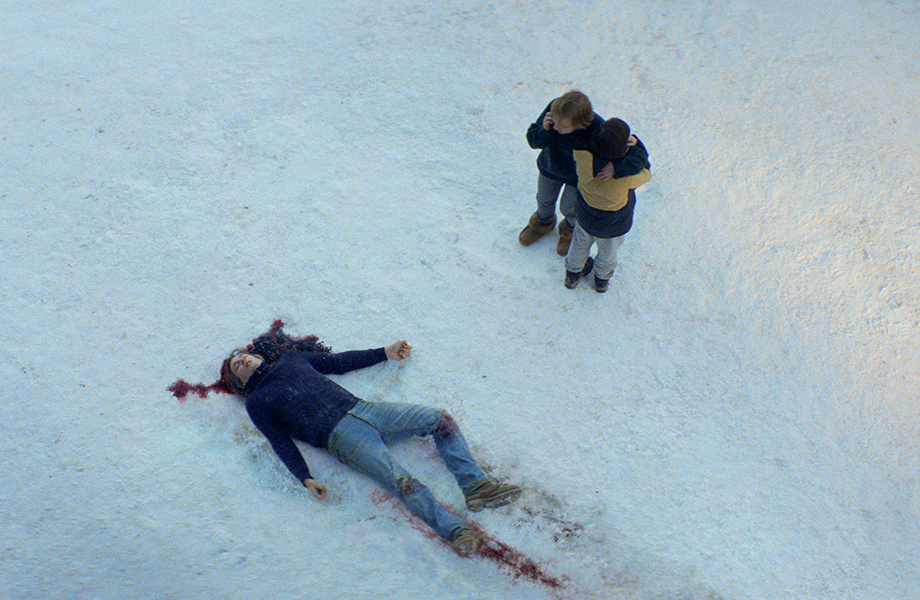
Since her first feature, French writer-director Justine Triet has probed the fraught boundary between fact and fiction. Age of Panic (2013) melded documentary footage of France’s presidential 2012 election with a chaotic domestic drama about visitation rights. In In Bed with Victoria (2016) and Sibyl (2019), she featured various artistic types crafting stories about themselves and others in deceitful, self-destructive ways. Their creative lives fed off their real ones, sometimes to a parasitic degree. If all writing is personal, distinguishing truth from fabrication raises existential questions: who owns a given experience? When does disclosure become betrayal? In the case of Triet’s fourth feature, the courtroom thriller Anatomy of a Fall, is blurring these boundaries a means of concealing another violent reality?
In this film (co-written by Triet’s partner and collaborator, Arthur Harari), the stakes are more dire than your typical literary debate. When her husband, Samuel (Samuel Theis), is found dead at the base of their French Alps home, Sandra (Sandra Hüller), a successful German writer, is suspected of pushing him from their third-floor balcony. The only witnesses are the couple’s eleven-year-old son, Daniel (Milo Machado Graner), who is blind, and his guide dog, Snoop. To prove her innocence, Sandra hires a man from her past, the concerned and courteous Vincent (Swann Arlaud). But whether or not she is guilty, Vincent says, is ‘not really the point’; his job as her lawyer is to tell a story that can be believed, no matter what really happened.
Reuniting with Triet after a scene-stealing turn in Sibyl, Hüller is riveting as an astute woman totally out of her depth. Sandra’s defence, as a German outsider, is complicated by the court’s requirement that she speak French during the trial. Firm in her innocence but baffled by the painstaking process of pleading it, her grief may be just as easily construed as guilt. Compared to Triet’s previous heroines (played by Virginie Efira and Laetitia Dosch), Sandra is significantly more self-possessed, yet she shares the familiar traits of a career woman and imperfect mother whose desires exceed the margins of her given role.
In the skilful opening scene, an interview with a graduate student (Camille Rutherford) reveals Sandra’s tendency to fictionalise personal events in her novels, including the accident that damaged Daniel’s vision. This mix of fact and fiction ‘makes us want to figure out which is which’, the student observes, an innocuous statement that foreshadows the case soon to be mounted against her. Later, we see a televised panel of people drawing comparisons between Sandra’s life as a writer and the speculation of her crime. ‘It all reads like her books,’ someone observes of the knotty court case. Interviews about her writing are quoted as proof of deviance. Her characters are no longer extrapolations of her experience but unfiltered embodiments of it.
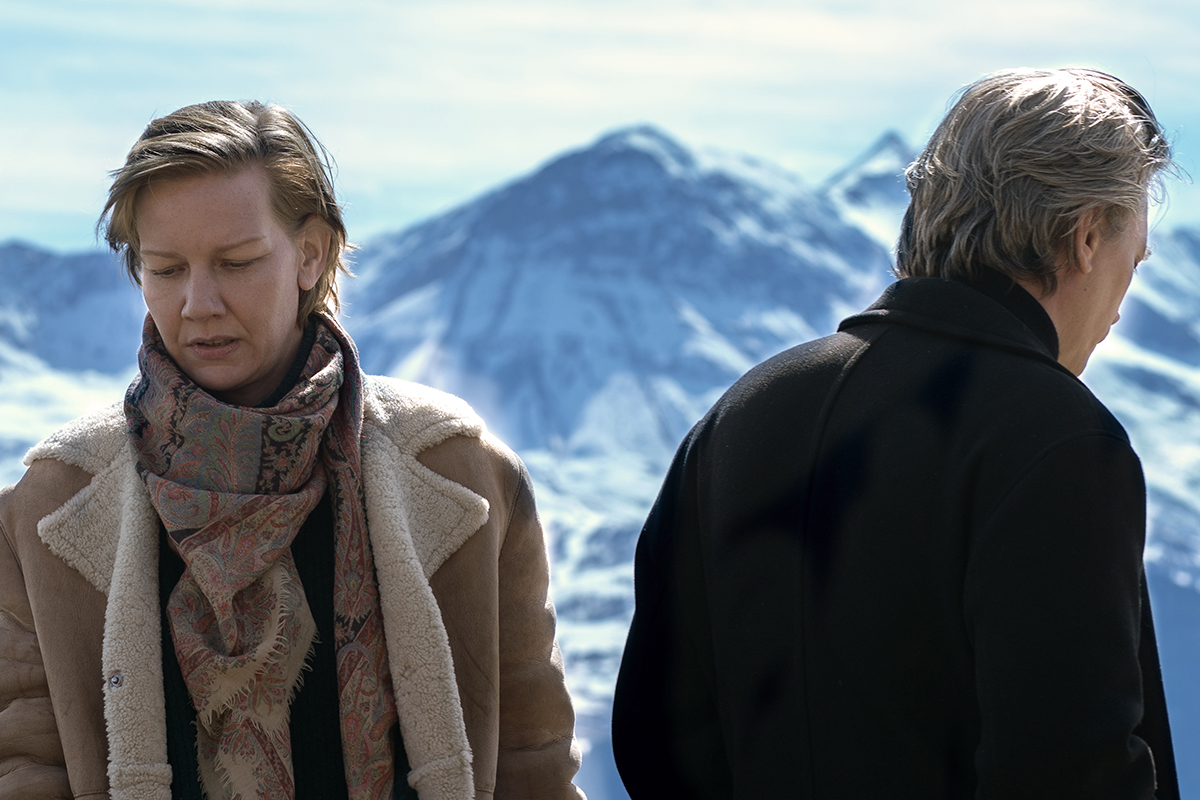 Sandra Hüller as Sandra and Swann Arlaud as Vincent in Anatomy of a Fall (Madman Entertainment)
Sandra Hüller as Sandra and Swann Arlaud as Vincent in Anatomy of a Fall (Madman Entertainment)
Avoiding any easy whodunnit conclusion (murder, accident, or suicide?), Triet and Harari locate their story not in the drama of Samuel’s fall, but in its lack of tangibility. With a twisted humour, we see multiple re-enactments of possible versions of his death and its lead-up. The surroundings of the family’s isolated chalet are permanently covered in thick layers of snow – a white blanket, reminiscent of a blank page, for each character to cast their narrative upon.
Triet’s recurring fascinations as a director – women’s ambition, parenthood, and slippery subjectivities – have hitherto resulted in stimulating, funny films with a lot on their mind, even if their structural and conceptual gambits haven’t always paid off. But in the razor-sharp Anatomy of a Fall, which took home the Palme d’Or at Cannes last year, Triet reins in some of her messier and overstated impulses. Her thematic fascinations are usually features of larger, more complex plots; now, the plot, the idea, and the director’s formal approach converge with startling efficiency.
Collaborating with Triet for the third time, cinematographer Simon Beaufils engages an assortment of digital filming techniques to evoke contradictory perspectives and sources. With a dynamic mix of handheld and staged shots, Beaufils’s camera frequently circles, tracks, and stumbles its way through scenes, echoing Samuel’s fall by repeatedly emphasising height and distance.
A particularly stylised moment occurs during Daniel’s first testimony. While he is being cross-examined by both Vincent and the prosecutor (an enjoyably haughty Antoine Reinartz), the shot remains fixed on the young witness’s face as he turns nervously from one lawyer to another, the camera arcing left and right with each turn of his head. In this moment, Daniel is little more than a piece of evidence to be contested. To watch the character often feels like watching the corruption of his memories in real time, a weight Machado Graner carries well. In lieu of a score for the film, the mood of the narrative is cleverly accented by his diegetic piano playing, by turns frantic and brooding to suggest growing uncertainty about his family.
Elsewhere, a flashback scene between Sandra and Samuel (himself a struggling writer) pulses with fury and bitterness, powerfully condensing the complicated marriage dynamic at the film’s centre. A unique pleasure of the film lies in the measured pace at which it discloses information. Seemingly settled matters between Sandra and Samuel are continually re-complicated by fresh revelations, resulting in a structurally satisfying, progressive unspooling.
This all hinges on a permanent tenor of ambiguity that, when the film overreaches, can verge on prescriptive. Sandra is an exceptionally evolved character, insistent on the limits of testimony and documentation to paint a clear portrait of her. Sometimes, this insistence overtakes the film’s own ideas. When a mysterious audio recording leads to Sandra’s indictment, she is on the defensive before the viewer even knows what’s at stake. ‘That recording is not reality,’ she pronounces. ‘It may seem like irrefutable proof, but actually warps everything.’
Still, Hüller’s fierce, unravelling façade is captivating. And the French legal system proves to be a storytelling apparatus all of its own, built on fantasy, performance, narrative and interpretation. In step with French cinema’s renewed interest in its country’s legal system (see also last year’s Saint Omer and The Goldman Case), Triet and Harari toy with the very idea of accusation and defence. Sandra’s sexual habits, her robust creative life, and her refusal to feel like a ‘victim’ in her marriage make it easier to villainise her. When she is accused of pushing Samuel off the balcony, what other un-wifely indiscretions are also being interrogated? Is she defending her innocence, or her right to complexity?
Various courtroom discussions, ranging from painfully astute to comically biased, make an explicit theatre out of slippery meanings and conflicting accounts. In the film’s most compulsive moments, this explicitness is a kind of diversion. Debates about the nature of truth can only further obscure it. And the film’s attendant concerns about what version of the past Sandra, her son, and the audience can bear to make sense of prompts larger questions about whether justice can ever emerge from the thorny entanglements of peoples’ lives. Sandra is smart enough to know how these things go, but that knowledge can’t save her from the ultimate hollowing out of her reality – a process Triet presents with crushing inevitability.
Anatomy of a Fall (Madman Entertainment) is released nationally on 25 February 2024.







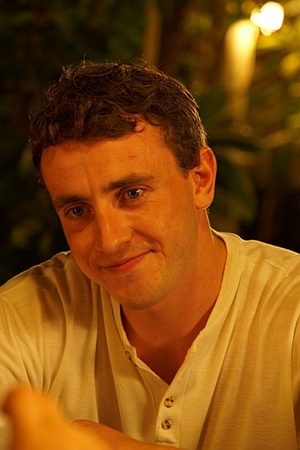
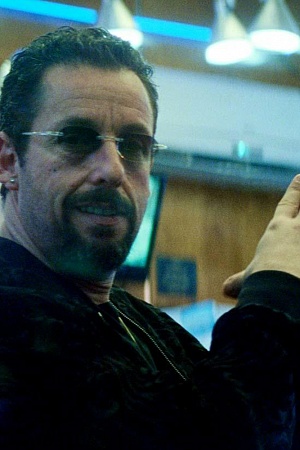
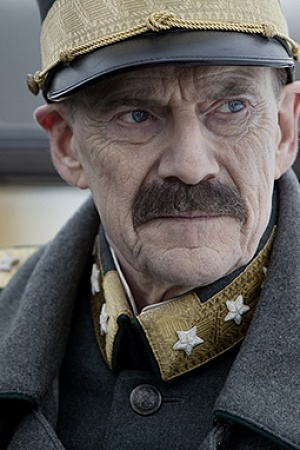
Comment (1)
Leave a comment
If you are an ABR subscriber, you will need to sign in to post a comment.
If you have forgotten your sign in details, or if you receive an error message when trying to submit your comment, please email your comment (and the name of the article to which it relates) to ABR Comments. We will review your comment and, subject to approval, we will post it under your name.
Please note that all comments must be approved by ABR and comply with our Terms & Conditions.